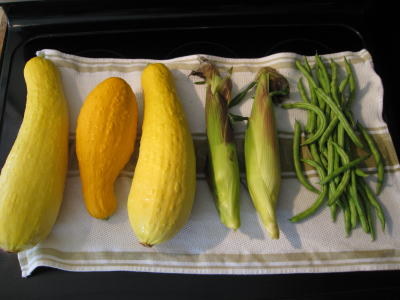by Lauren Kepkiewicz, Community Food Security RA
While many of the Community Food Security (CFS) Hub projects within the Community First: Impacts of Community Engagement (CFICE) project have sought to address structural impacts of patriarchy, capitalism, and racialization within the food system, the collective research generated from our project partners has highlighted the need to better understand settler colonialism in Canada. This is particularly important because colonialism in Canada is often ignored, normalized and left undiscussed by non-Indigenous peoples. However, the more we learn, the more we understand Canada as a colonial power that was created by taking Indigenous land, never returning it, and denying Indigenous peoples sovereignty and self-determination. Settler Colonialism in Canada continues to be reproduced through policies that work to further separate Indigenous peoples from their land, validating settler claims to property, and assimilating Indigenous culture, history, and foodways. Erica Violet Lee further (2016) explains that:
“It is not a coincidence that areas with high Indigenous populations are the areas deprived of access to food and health care. At its core, this is an issue of maintaining the dispossession of Indigenous people and the legitimacy of Canadian control; an attempt to destroy the nations and legal orders that we hold in our blood, our muscles, our stomaches, our minds, our mouths.”
Within this context, our core team at the CFS Hub has been trying to better understand how we can decolonize our practices as non-Indigenous/settler peoples involved in community-campus collaborations. We start with the understanding that decolonization works to realize Indigenous sovereignty, repatriate Indigenous lands, and re-imagine relationships to land and beings. This understanding leads us to a series of questions about how we can best change our work: How can community-based research challenge institutional structures and policies that promote extractive research and delegitimize Indigenous knowledge? How can community-campus relationships support Indigenous sovereignty and self-determination? How can research promote settler education around colonialism, decolonization, and Indigenous resurgence? How do our research practices work to support Indigenous struggles for land through food? How does community-based research provide encouragement and support relating to the unsettling and discomfort necessary for dealing with settler complicity? What are our intentions in doing this type of work?
In thinking through some of these questions we look to community partners who are doing this work, such as the British Columbia Food Systems Network (BCFSN) and community organizers such as Dawn Morrision and Abra Brynne. For example, Dawn explains Indigenous food sovereignty as a “framework for exploring and appreciating the optimum conditions and possibilities that exist for reclaiming the social, political and personal health we once experienced prior to colonization” (2011, p. 106). From a settler viewpoint, Abra talks about the need for discomfort as a starting point for figuring out “what it means to be in a relationship of justice and integrity with the people of the land I now squat upon” (2015). Within this process of learning and (re)learning Abra highlights the need to listen, to engage in conversations with Indigenous peoples, and to be humble. With these learnings in mind, we are particularly excited to support some of this work through our CFS Hub partnership with the BCFSN as they explore what it means to decolonize day-to-day activities within their organization.
References
Brynne, Abra. 2015. Decolonizing food systems: A journey into an uncomfortable, but necessary place. Rabble. Online: http://rabble.ca/blogs/bloggers/views-expressed/2015/12/decolonizing-food-systems-journey-uncomfortable-necessary-pla
Lee, Erica Violet. 2016. Feeding the heart of the city: A love letter at the closing of our grocery store. Moontime Warrior. Online. http://moontimewarrior.com/2016/02/01/feeding-the-heart-of-the-city/
Morrison, Dawn. 2011. Chapter 6: Indigenous Food Sovereignty: A Model for Social Learning. In Food Sovereignty in Canada: Creating Just and Sustainable Food Systems. Eds Hannah Wittman, Annette Aurélie Desmarais and Nettie Wiebe. 97
